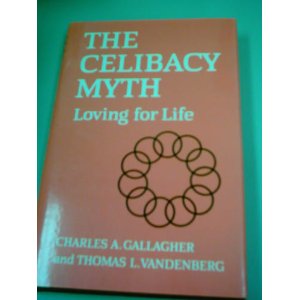Continuation of the outline of the book: The Celibacy Myth: Loving for Life; Charles A.Callagher and Thomas L. Vandenberg. St Paul Publications. England. 1987
This is an excellent book written mainly for Catholic priests but it has relevance for all celibates.
Chapter3: Bachelor or Bridegroom?
A priest or Christian leader should not be described as a ‘man of God’ but a ‘man of God’s people’ and Celibacy is a “way of loving for life” … “When living in relationship with his people, his (i.e. the priest’s) basic human emotional needs for love, belonging and self-worth will be met.”
The more we lose ourselves in love and move in self-giving, the more we find our identity as people. Marriages that are successful are not based on ‘my-need’ but on self-giving. It is no good getting married for what is ‘in it for me’. ‘Give and it shall be given to you’ is a recipe for successful marriage i.e. you have to be the one who initiates the affirming and loving process. It is all too easy to compensate for lack of relationship by busyness, career etc. – and before you know it the relationship drifts apart.
Priests become leaders in order to express self-giving to the people of God. It is not a job, it is a relationship; the priest is taking a Bride. As the priest offers himself totally up for his people, his own heart is filled. He does not think in terms of self-fulfilment but in terms of what he can give to the Bride. Celibacy can only be understood in terms of love commitment to the church – not in terms of what has to be sacrificed. A celibate’s needs are fulfilled among the people of God.
When a celibate senses a need in himself to be loved, he must reach out in love to his people. “He must take responsibility for meeting his needs, and he does so by giving of himself.” As celibates we need not fear our negative feelings of loneliness and anger. They are God’s call to us – into a deeper relationship with His people. Priests must not compensate for unmet needs by being needlessly busy.
As celibates, we have to fight the independent spirit. It’s easy to withdraw and become aloof – especially when one’s self-esteem becomes low. At such times, like a married man has to rekindle his love for his wife, a faint-hearted celibate “can choose to refocus his attention on his beloved people by loving beyond his hurts and disappointments. When his sense of self-esteem is wanting, a priest can remember that he is part of something bigger than himself and can choose to affirm, praise, and build up his spouse, the people of the church.”







 Jesus Army
Jesus Army Community
Community Real and Wild
Real and Wild